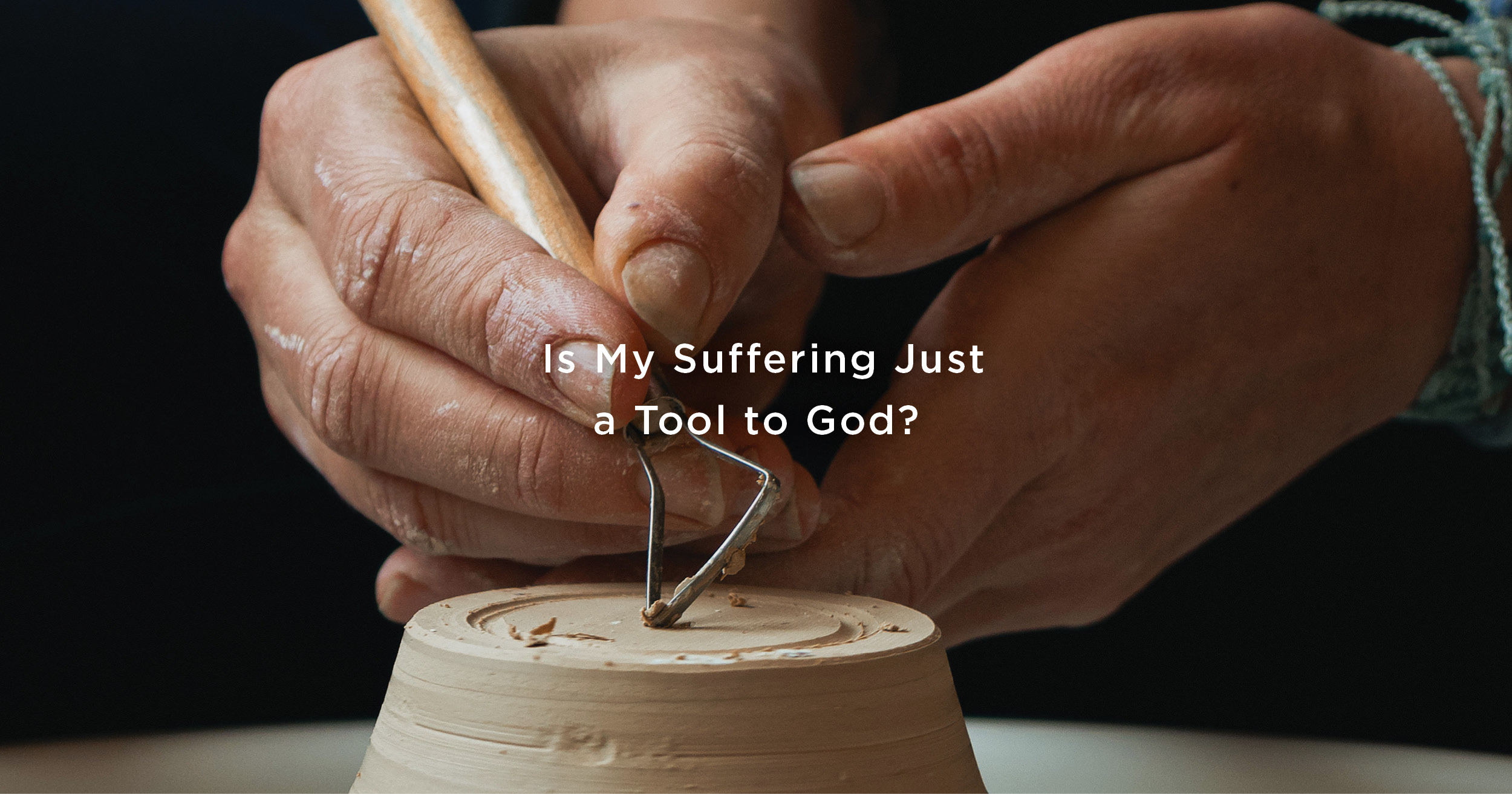
Have you ever been led to feel as though your pain is just a tool to God? Perhaps others have praised the fruit of any difficult times you have experienced, but your battle-scars are left unacknowledged and untended in the light of the good they have brought about. Maybe, you think, you shouldn’t mind them as much as you do.
Or maybe you have questioned God’s purposes in your struggles: if God really did plan them, where does that leave you in your relationship with God? How can God be your loving Father when he gave you more than you could bear in order to use you in your adversity?
These are the big questions, and we must address them to come to terms with what it means for God to work all things to the good. God does work in and through our pain. But how can we find a new language to express God’s work in our weakness, while holding onto the profound truth of God’s love and his abiding with us where we are?
God brings about his good purposes through all our experiences (Romans 8 v 28), and God’s strength is made perfect in weakness (2 Corinthians 12 v 7-10). I know that God has worked through my own experience of lifelong illness to help others, and that is a joy to me.
Yet there is a gaping distance between the language of love and the language of use. In one, our pain leads to hope, assurance and authentic change; in the other, our pain is a tool to deploy without thought of what it does to us.
We do not have to give the glory to the suffering itself, but to God who is with us within the suffering.
In the first few chapters of Romans, Paul lays out a theological foundation in order that we understand and appreciate the vastness of salvation. He’s examined sin, righteousness, and Jesus’ saving work on the cross.
Romans 5 takes us on a wild ride into hope, describing some of the incredible benefits of our being declared righteous through faith. We have peace, we have hope and we have love. And it is these that carry us through when hardships hit, so that we can do more than simply cope; we can glory in them.
Paul isn’t writing a theoretical treatise, an idealised version of Christian behaviour; he writes from grim experience. He acknowledges this with lists of great hardships and appeals to God to take his pain away. But the heart of Paul’s teaching is a change of perspective: "I consider that our present sufferings are not worth comparing with the glory that will be revealed in us" (Romans 8 v 18).
Ask yourself this question: does Paul mean that our suffering does not matter? Or is he pointing to something different—to a way of viewing our pain through the lens of future hope? Hope is a remarkable thing; it keeps us going through the most hideous of situations. Paul is drawing on this truth to help us reframe our suffering into something incomparable to what will one day be our reality—when mourning and pain flee away.
Paul doesn’t say that we glory because of our suffering, but in our suffering (Romans 5 v 3). We do not have to give the glory to the suffering itself, but to God who is with us within the suffering. We exult because Christ is in there with us, drenching us in freedom. We don’t have to see hardship as something imposed on us to make us useful people, but as something we grow in and through.
Now, I don’t know about you, but I don’t often feel like I rejoice in my difficulties and pain. And I certainly don’t wish to think of my suffering bringing about good when I am knee-deep in it. I just want to get through it. But Paul’s inside-out thinking gives us a chain of growth that develops through trials in our lives—and helps us to view them through the lens of hope even while still living within their grip.
There is a gaping distance between the language of love and the language of use.
Suffering leads to perseverance. The word Paul uses for “suffering” is not a platitude. It’s a word infused with strength and depth, covering a wide range of trials of body, mind and spirit. Paul isn’t just talking about persecution in this passage (Romans 5 v 3); he’s calling to mind all the suffering, all the anger, all the pain.
When we hold onto the assurance that we stand firm in Christ through difficult times, significant endurance is built in our faith. The more we forge this kind of perseverance when life hurts, the more robust our faith becomes.
This is an extract from Valuable by Liz Carter. Liz takes readers on a journey to see what the Bible really says about weakness, identity, and God's purposes for us.